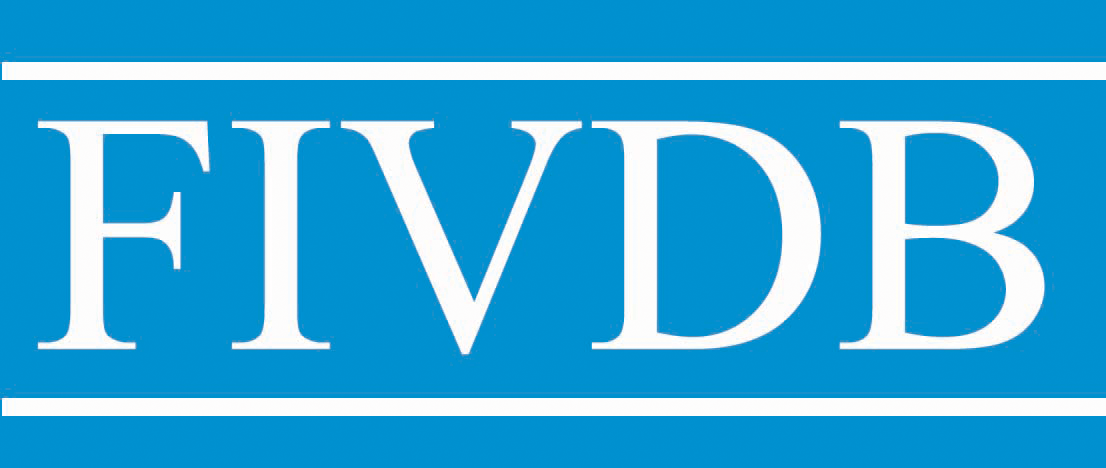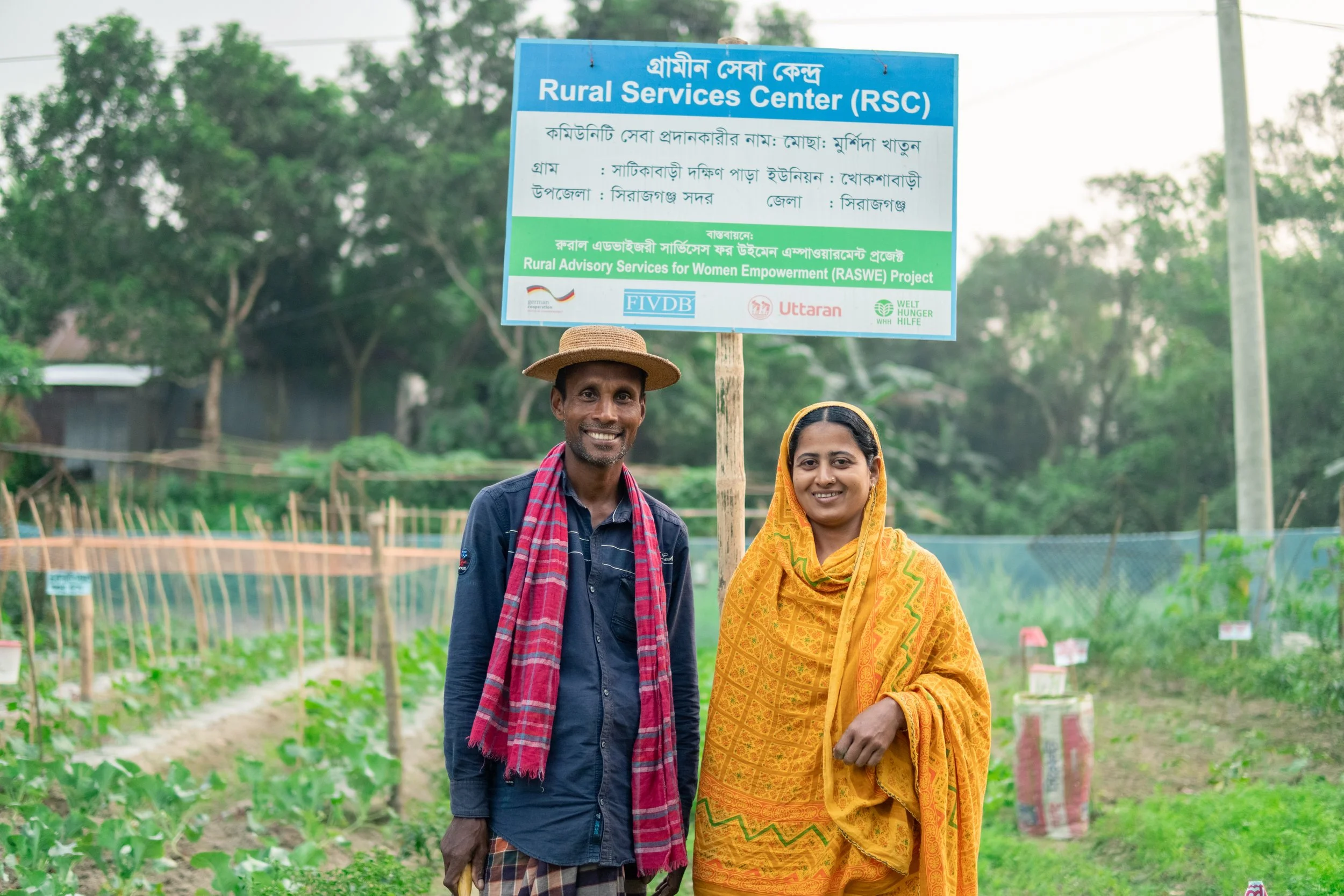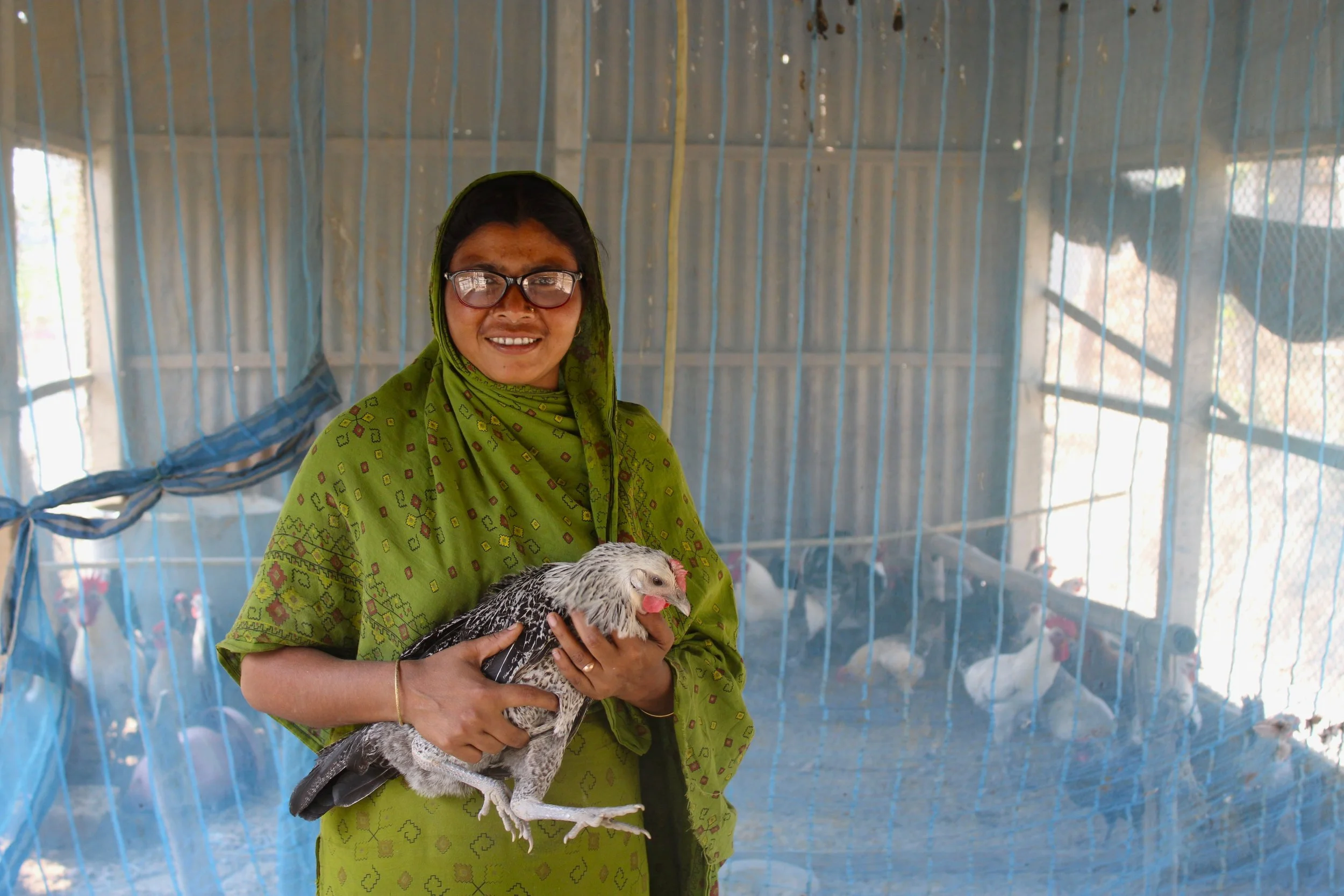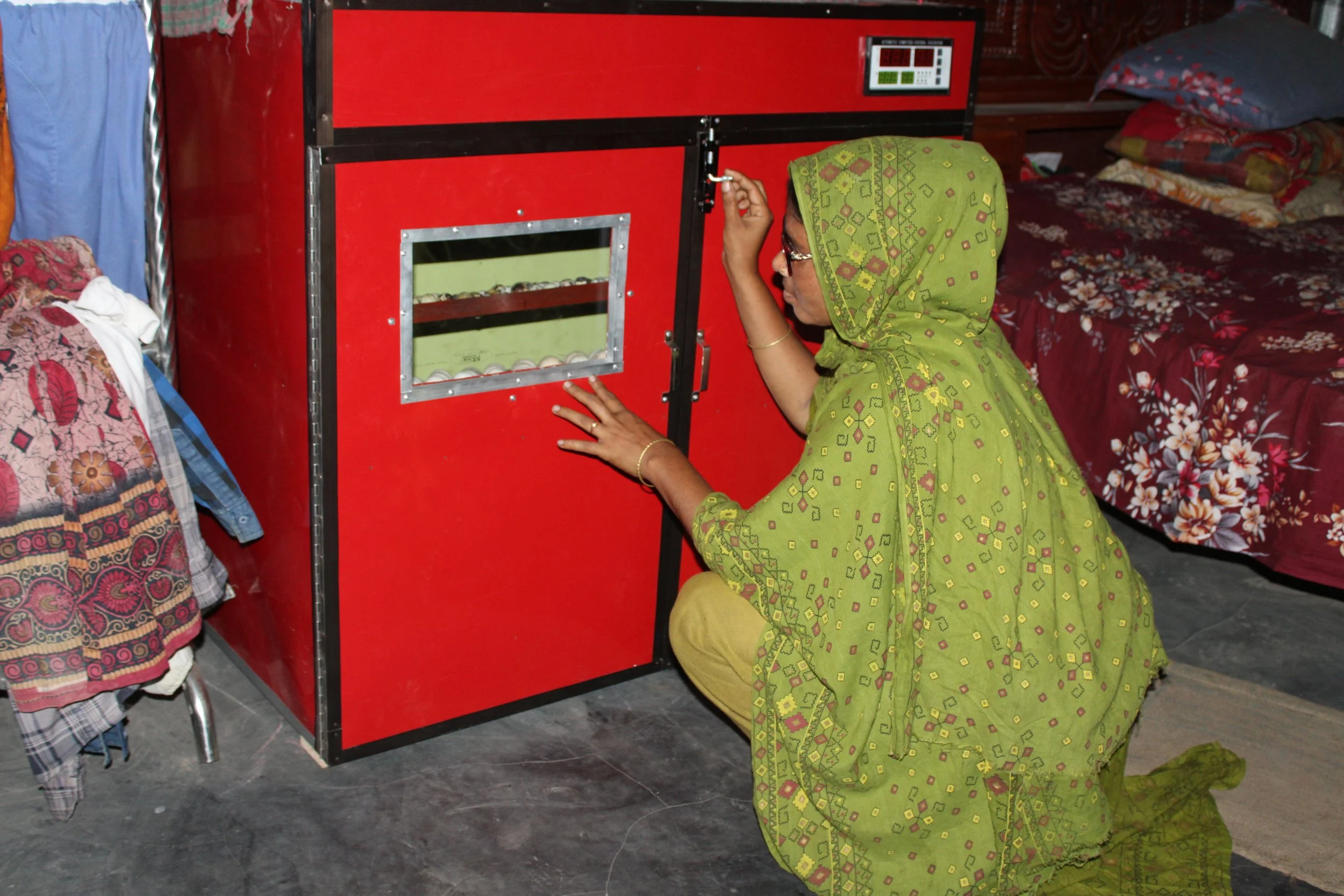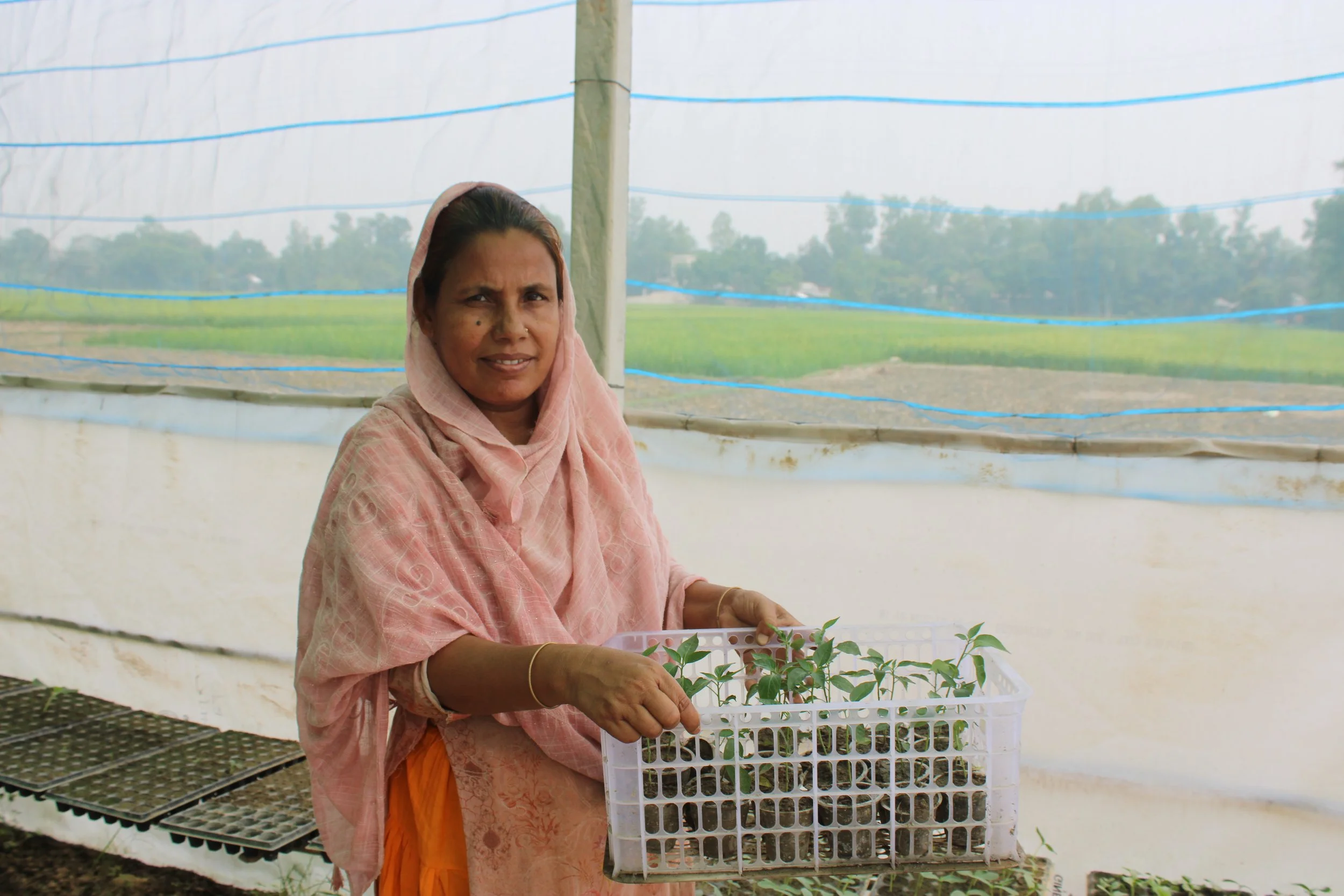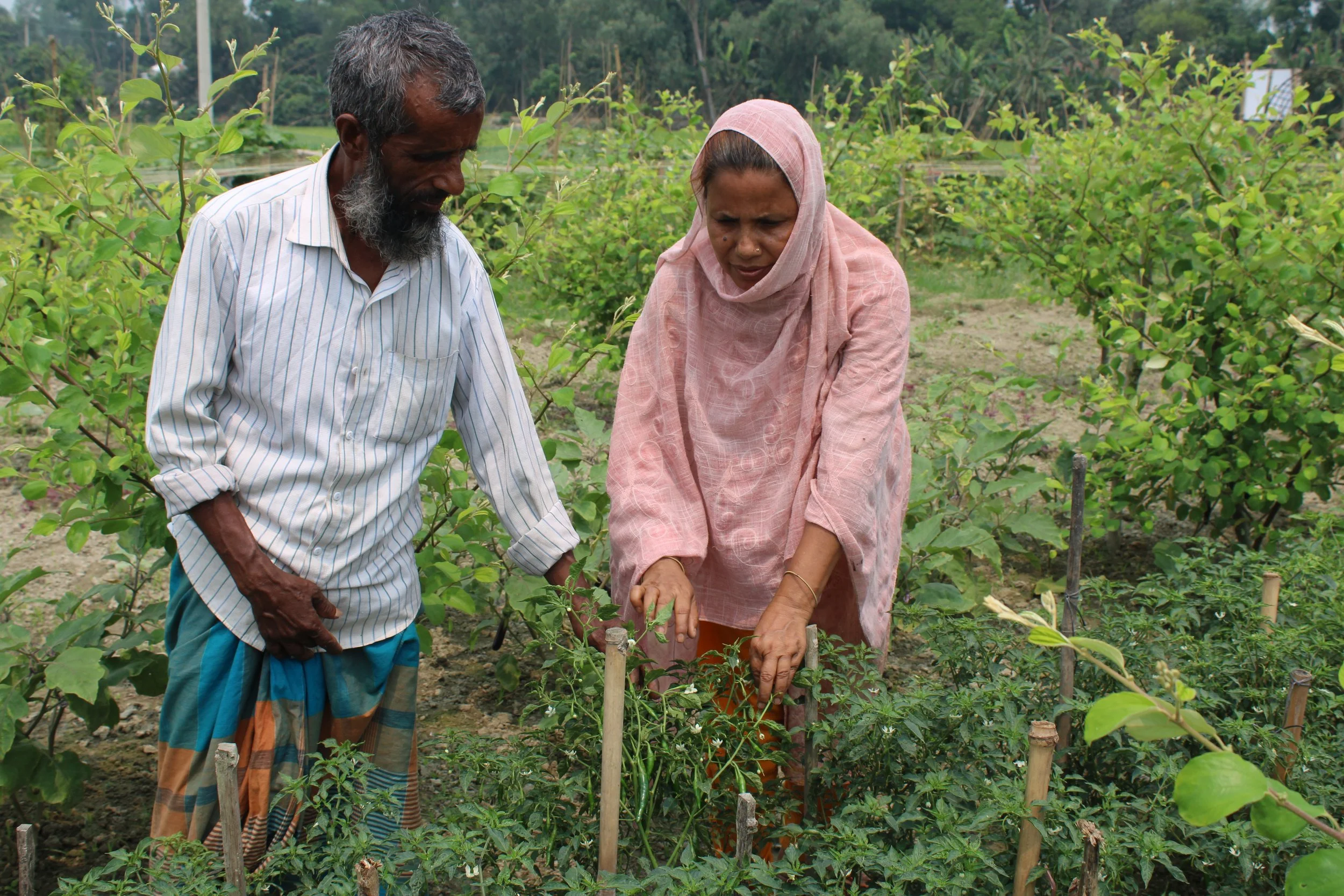Rural Advisory Services for Women Empowerment (RASWE)
The Rural Advisory Services for Women Empowerment (RASWE) project works to improve the socio-economic situation of economically vulnerable and politically marginalised women in the rural district of Sirajganj. The consortium project led by Welthungerhilfe Bangladesh, implemented by Friends In Village Development Bangladesh (FIVDB) & Uttaran directly supports 3,000 women farmers and entrepreneurs and 100 women Community Service Providers (CSPs). It also helps them take part in local decision-making and find better ways to earn a living.The project also works with key intermediaries to create a lasting impact. These includes 4000 secondary school girls, 600 community members (400 men and 200 women), 40 government extension officials, 40 local government representatives, 10 women civil society representatives. In addition to them, the project will indirectly benefit 15000 farmers, who gain knowledge and better access to services through the trained women.
Project Results:
The capacity of 100 women Community Service Providers (CSPs) is strengthened and an enabling environment is supported through government and private sector involvement.
Strengthened and independent women Micro, Small, and Medium Enterprises (MSME) and entrepreneurial groups have increased their sales and turnover in local markets.
Women have a greater influence on economic decisions at household and local policy level.
Through these direct and indirect efforts, the RAS4WE project is creating a stronger, more supportive environment for women in the Char region of Sirajganj.
Case Story 01
TANJILA, Once Failed:
A Second Attempt at Entrepreneurship
Ms. Tanjila Khatun once attempted to start a poultry farm in 2022 but faced failure due to limited knowledge and poor management skills. However, driven by a strong determination to support her family, she refused to give up. With assistance from the Rural Advisory Services for Women Empowerment (RAS4WE) Project, she has since established a thriving Fayoumi chicken farm, supplying eggs and hatched chicks to her local community. “My husband and I worked very hard to take care of our family. In 2022, I started a small chicken farm, but most of my chickens got sick and died before I could sell them. I lost my money and felt hopeless,” Tanjila says.
Tanjila resides in Agboira village, Ratankandi Union, within Sirajganj Sadar Upazila of the Sirajganj District. She completed her Higher Secondary School Certificate but was unable to continue her education further. With two school-going sons, both she and her husband worked tirelessly just to put food on the table, struggling to afford their children’s education.
Hope returned to her path as she joins FIVDB and began participating in hands-on training on improved poultry rearing and management. With newfound knowledge, she started modestly—reinvesting in 100 Fayoumi chicken chicks. Tanjila focused on proper vaccination, improved feed management, and hygiene practices. As part of her strategic planning, she sold the male chicks and retained 44 females and 8 males to ensure successful brooding.
Today, her farm produces between 34 and 38 eggs daily, earning her approximately BDT 9,000 per month. She has also started incubating eggs using equipment provided by FIVDB, which is expected to increase her income even further.
“With better knowledge and management skills training, including proper vaccination, and support from FIVDB, I can now keep my chickens and money safe from disease. I don’t worry about my son’s education anymore. Even, many women in my community are also starting small farms at home after seeing mine.” Tanjila Says
The RAS4WE project remains committed to supporting women like Tanjila and hopes that her success will inspire and motivate many others to follow in her footsteps, learning from her journey and striving for similar achievements.
Case Story 02
From Dependence
to Decision-Making
Most. Salma Khatun, once a full-time homemaker, has transformed into a respected agricultural service provider in her community. She now operates a climate-resilient seedling center (nursery), where she supplies improved crop seedlings to local farmers. In addition, she manages a Rural Service Center (RSC) — a local hub for agricultural learning and support. “When my husband left his madrasa job, we had to rely solely on farming. That’s when I knew I had to help. I never imagined I could earn or take part in important decisions for my family” Salma reflects.
Salma lives in Shukdebpur, Ratankandi, Sirajganj Sadar, a char region in Bangladesh. She completed her Higher Secondary School Certificate before marrying Md. Saiful Islam, but couldn’t pursue further education due to financial hardship and family responsibilities. She is now a mother of three: her eldest daughter attends college, the second daughter is in higher secondary school, and her youngest son is in primary school.
Her journey began when she participated in training offered by FIVDB, where she learned practical skills in nursery management, improved farming techniques, climate-smart agriculture, and agricultural service delivery. With support from FIVDB, she established a nursery shed using UV poly sheets, weather and insect netting, and bamboo structures. She adopted best practices like quality seed selection, using coco peat, organic composting, and safe pest management.
In last month, Salma sold around 2,000 seedlings, earning BDT 20,000 from her nursery — with expectations of generating an average monthly income of BDT 10,000 throughout the year.
She sold around 2,000 seedlings worth BDT 20,000 last month from her nursery — with expectations of generating an average monthly income of BDT 10,000 throughout the year. “My nursery is gaining popularity for improved, high-value crop varieties. Farmers regularly seek my seedlings, and both men and women now value my opinion. I even received a seed discount from a supplier, thanks to project-supported market linkages. It feels like I’m achieving something.” Salma shares proudly.
Salma’s husband who earlier struggled managing the family expenses has been found supportive to Salma throughout the journey and expressed his appreciation, saying “Our children’s education expenses are now fully covered by Salma’s income. Without it, we might not have been able to continue our daughters’ higher education.”
Salma’s journey is a powerful example of how knowledge, opportunity, and support can transform a woman’s role in her family and community. From being financially dependent to becoming a confident decision-maker and agricultural leader, Salma’s success reflects the potential of rural women when given the right tools with appropriate scaffolding. Her story continues to inspire others around her — proving that when one woman rises, many follow.
